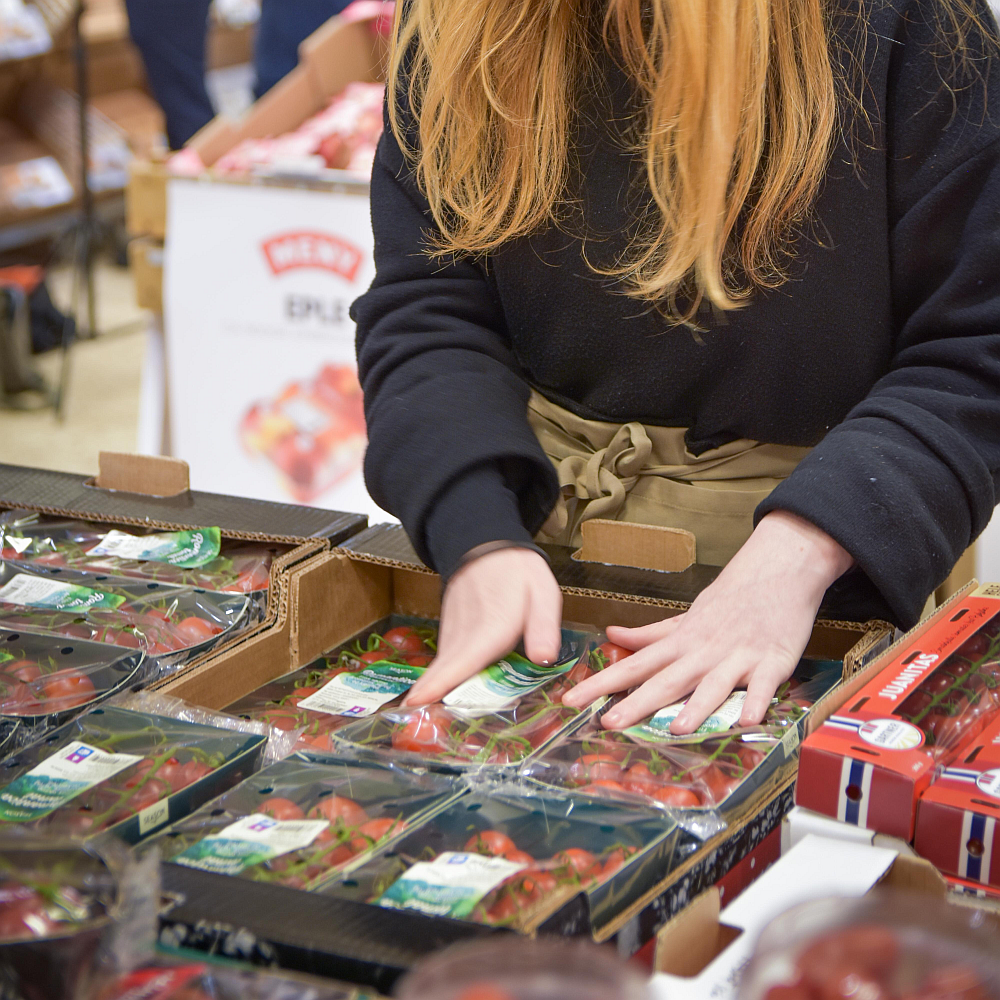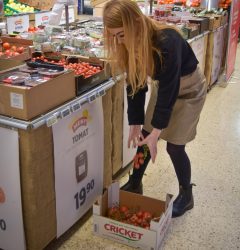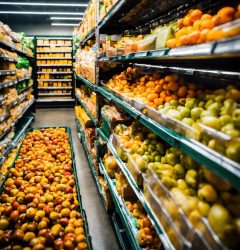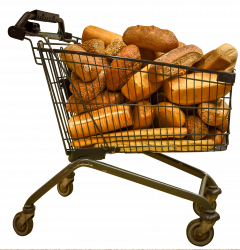16 Jan

How to Manage Grocery Food Waste?
Food waste in grocery stores is becoming a growing concern globally as supermarkets fail to handle these escalating figures seriously and efficiently. Not only does this lead to the wastage of fresh, edible food on a large scale, but it also impacts the environment severely. For this reason, steps are being taken by solution stores around the globe to minimize grocery store food waste as much as possible. If you’re planning to take the same approach for your stores, here are 5 tips for managing grocery food waste effectively.
Why is Food Waste in Supermarkets a Growing Concern?
Did you know that around 1/3 of global food production goes to waste annually? As alarming as this may sound, grocery store waste accounts for the largest proportion of this amount. In Europe alone, 15,000 pieces of bread find their way into the dumpster yearly. If you think this quantity is distressing, wait till you find out that this figure accounts for bread waste per store in Europe. Thus, bread wastage aggregates to 240 million slices of bread in a year. The bread and cereal category is not the only group going through this horrifying cycle of supermarket food waste. Fruit and vegetable waste is the highest among all categories of foods, with more than 60% of fresh fruit and vegetables going to waste every year.
What happens with this food waste grocery stores ultimately is that they end up in landfills where they are left to rot. Their rotting releases methane gas and other hazardous gasses, which generate massive carbon emissions. With climate change already threatening the livelihood of people around the world, such emissions only elevate the catastrophic effects of climate change.
How to Effectively Manage Food Waste in Grocery Stores?
Since grocery stores are responsible for the largest chunk of global food waste, it is only fitting that they are tackled first and foremost. The walk towards sustainability in food management may seem arduous at first. Still, the end results will indeed be worth it. Not only would they play a major role in saving the environment, but they will also uplift their brand reputation by adopting an environmentally friendly approach. The 5 ways mentioned below are just some of the few strategies to assist with managing grocery store waste like an expert.
Adopt a Technological Approach
A major contributor to grocery store food waste is expiry dates. 87% of food ends up going to waste because the product goes past its expiration date. Thus, supermarkets can adopt technology that tracks the expiration date of all the products on sale on their shelves. This way, if any unsold food item would be nearing its expiration date, the tracker would send a signal to the store’s system informing them about this occurrence. The store could then take measures to sell that item faster such as placing discounts on that product or moving it to the front of the shelves.
Get Informed About Patterns Through Data Analytics
Furthermore, planting a cloud-based system on your retail store’s POS system helps gather relevant data patterns that can help manage food waste in supermarkets dexterously. For instance, supermarkets can install cloud-based POS systems. This way, they can be informed about which products sell out faster and which usually stay unsold. As a result, they can communicate with their suppliers accordingly and purchase their best-sellers in bulk. As for those items that aren’t brought frequently, supermarkets can purchase limited quantities of these products. This helps manage inventory constructively and reduces grocery stores food waste.
Switch to Modern Electronics
In some grocery stores, food waste occurs because eatables aren’t stored at the right temperatures. This can be prevented by purchasing modern electronics or gadgets that maintain the temperature of food aisles even when customers are interfering with their systems. Some of these gadgets include sensors that alert the management when the temperature level is not at par with the ideal temperature for that category of foods. Furthermore, supermarkets can invest in modern energy-efficient appliances that maintain food temperatures and save energy costs for the entire store.
Get Employees to Hop on The Bandwagon
Conclusively it is the supermarket employees that are going to perform the handling of food items. Even the most minute every day mistakes made by them, such as placing heavy items on fragile ones, can lead to the wastage of entire boxes of edible products.
Additionally, halting the cold chain process at any stage can create unwanted food waste. All this can be avoided simply by training the employees. Making sure that the employees and the management are on the same page about food waste can prompt them to be more careful when handling products.
Partner With Link Retail to Manage Grocery Store Food Waste
Link Retail is a technology-focused firm dedicated to releasing modern and practical solutions to tackle food waste in grocery stores. The prime objective of Link Retail is to come up with efficacious ways to guarantee food safety, quality management, and traceability.
Supermarkets can plant Link Retail’s cloud-based system on their POS systems to get a comprehensible architectural overview of the entire store’s structure. This way, grocery stores can gather valuable data to certify the least amount of food waste possible. Besides that, Link Retail software has managed to tamper with the problem of sold-out and food wastage situations. Link Retail’s software is designed to keep the best-selling items in a store stacked up at all times. This leads to unimaginable sales figures fixing the problem of lost sales due to items being sold out.
At the same time, this Link Retail Software is designed to empty market shelves of slow-moving foods before evening. This way, food wastage is prevented as well. Our back-office management tools enable real-time tracking of everything happening at solution stores. This is an advanced way of securing historical data that you can revisit anytime to spot loose ends leading to food wastage. With Link Retail, eliminating food waste in supermarkets becomes a reality through our unmatched technological ideas. But that’s not all that grocery stores can gain from them. Link Retail also offers solutions for stores to maintain or increase their sales figures along with reducing wastage.
Related Post
Tags
Keywords
Tags
Resources
© 2020-2024 Link Retail. All rights reserved.











